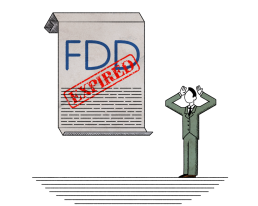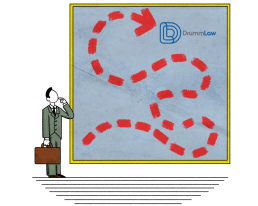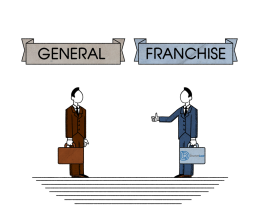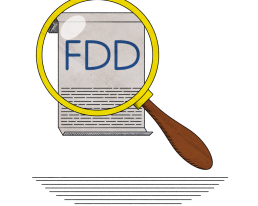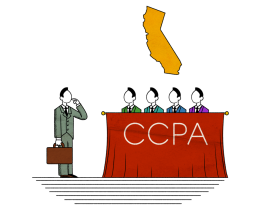Importance of Franchising Industry Growth
The franchise industry has been growing exponentially, as there are many new opportunities available as a result of Covid-19. Entrepreneurs used the upheaval of the pandemic to create new business models to cater to the needs of people stuck at home in the shutdown. And when the model works in one town, this is a good time to branch out into franchising and take the business model to another part of the country as well.
Innovations like mobile and delivery-only restaurant concepts are taking the country by storm. Because many people are not going to traditional sit-down restaurants as much, this is an excellent business opportunity. Additionally, because many people are doing home improvements while stuck at home, mobile home improvement franchises have also been emerging.
The rise in virtual work has left many office fronts sitting empty. This means that in most of the country, rental space is getting cheaper. Franchisors can get a space for their new business at a cheap rate, which helps the bottom line as they are trying to build the new company.
In addition to new franchises, there are some notable current franchises that have been doing well in the pandemic. Popeye’s and Domino’s pizza are flourishing, considering how many people want a take-out meal in these difficult times. School related franchises are also doing well, as the school situation across the country is difficult at best. Mathnasium, a private tutoring company, is getting a lot of business from people concerned their children are falling behind. And with all of the new safety regulations in place, franchises like Fastsigns are booming as retail establishments, restaurants, and schools clamor to follow regulations and create the necessary signage to keep people safe.
The growing franchise industry is important because it is an excellent time to get to work as a franchisor, to develop a concept and to market it to others. If you have ever had the interest in taking a chance on a business idea, now is the time. The pandemic has shaken up the snow globe of franchising, and with so many new businesses available, this is a great time to jump.
But as the old saying goes, if it's worth doing, it's worth doing right. If you want to make your franchise dreams a reality and jump on the bandwagon of the burgeoning franchising business, start with an experienced franchise lawyer who can help you lay the foundation for a successful franchise down the road. They can help you turn your business model into a workable business to start with, and that in turn can eventually be franchised across the country.
Franchise FDD Expiration Rules by State
Your FDD will expire at the earlier of (1) when the new FDD is issued, or (2) when you reach a state or federal expiration date.
New FDD Issuance
Once you issue your new FDD, your old FDD expires.
For example, if you are in California and you issue a new FDD on April 20, your old FDD expires everywhere. Once you issue a new FDD anywhere, you are no longer allowed to use the old FDD anywhere.
State or Federal Expiration Date
Your FDD will expire on a national level 120 days after your fiscal year end.
So, if your fiscal year end is December 31, your FDD will expire on April 30.
When your FDD expires in a certain state will depend on whether that state’s registration is tied to your fiscal year end or if it is tied the effective date of registration. Many states require that your FDD arrive in their office before the expiration date so do not plan on mailing the FDD a day or two early.
Several states’ registrations also expire 120 days after your fiscal year end: Illinois, Minnesota and New York. Hawaii and California have shorter timelines. Hawaii’s registration expires 90 days after the fiscal year end and California expires 110 days after the fiscal year end. Most franchisors do not prioritize the Hawaii deadline because the filing fee for a renewal and an initial filing (or late filing) is the same. Because of this, the California deadline generally controls the FDD update timeline.
Other states will expire 12 months after your state registration date. It is important to realize that while your registration in a state may still be effective, your FDD may not. For example, you are a franchisor with a December 31 fiscal year end. Your FDD expires on April 30. You might be registered in Maryland with an effective date of June 30, meaning your Maryland registration is still valid until the following June 30. However, if your FDD is expired, you cannot use it to offer or sell franchises in Maryland, even though you have a valid registration. This is one of the reasons it is important to update your FDD well before expiration date.
Here is a chart showing the registration or filing state’s expiration timelines:
|
REGISTRATION OR FILING STATE |
REGISTRATION EXPIRATION DATE |
| CALIFORNIA | 110 days after your fiscal year end |
| CONNECTICUT | Once exempt, does not expire |
| FLORIDA | One year after the effective date |
| HAWAII | 90 days after your fiscal year end |
| ILLINOIS | 120 days after your fiscal year end |
| INDIANA | One year after the effective date |
| KENTUCKY | Once exempt, does not expire |
| MARYLAND | One year after the effective date |
| MICHIGAN | One year after the effective date |
| MINNESOTA | 120 days after your fiscal year end |
| NEBRASKA | Once exempt, does not expire |
| NEW YORK | 120 days after your fiscal year end |
| NORTH DAKOTA | One year after the effective date, but an amendment or early renewal is due 120 days after your fiscal year end |
| RHODE ISLAND | One year after the effective date |
| SOUTH DAKOTA | One year after the effective date |
| TEXAS | Once exempt, does not expire |
| UTAH | One year after the effective date |
| VIRGINIA | One year after the effective date |
| WASHINGTON | One year after the effective date |
| WISCONSIN | One year after the effective date |
If you have any questions, please feel free to contact us.
How to Choose the Best Franchise Attorney
A franchise lawyer is a lawyer that has specialized in the area of franchising, both for franchisors and franchisees, and has knowledge in all legal issues involving both state and federal franchising laws.
Selecting the right franchise attorney for your business can be a daunting task, as most law firms claim to have at least some experience in the area of franchise law. Before selecting your franchise lawyer, it’s important to understand a few things:
- What franchise lawyers do
- Why you need a franchise attorney
- What a Franchise Disclosure Document (FDD) is, and how a franchise attorney can help
What does a franchise attorney do?
By contracting an experienced franchise attorney, you aren’t just helping protect yourself against any inconsistencies in your Franchise Disclosure Document or liabilities in the process — you’re also helping mitigate any potential issues along the way.
Why do I need a franchise lawyer?
A competent franchise attorney can offer you incredibly useful suggestions how to structure your new or existing franchise business. Selecting the right franchise lawyer also means having the right team by your side if things happen to go south, for a variety of reasons.
About Drumm Law
At Drumm Law, our mission is simple — we are a virtual firm with an award-winning team of franchise attorneys that are ready and willing to assist you with any of your legal franchise needs.
Learn more about how Drumm Law can help with your franchising processes.
Choosing the Right Franchise Law Attorney
A common misconception about lawyers when it comes to business owners is that they just need a “business” lawyer that helps cover everything.
The reality is, when embarking on the franchising journey, whether as a franchisor or franchisee, it’s incredibly important to find a franchise lawyer who specializes not only in franchise law — but in your specific industry, if possible.
Just like lawyers who focus on bankruptcy law, or tax law, for example, a franchise attorney is well-versed in the legalese and best practices necessary to not only help with documents such as Franchise Disclosure Documents (FDD) on the front end, but also to help represent and defend franchise entrepreneurs whenever necessary.
When working with important franchising document — whether it be FDD documents, financial disclosures, liability agreements, etc. — it’s incredibly important to have a vetted, experience franchise lawyer to help guide you through the processes.
Having an experienced franchise lawyer can help make everything from renewing leases and setting up corporate entities to Franchise Disclosure Documents move more smoothly.
About Drumm Law
At Drumm Law, our mission is simple — we are a virtual firm with an award-winning team of franchise attorneys that are ready and willing to assist you with any of your legal franchise needs.
Learn more about how Drumm Law can help with your franchise. Contact us today.
What does a franchise lawyer do?
When deciding to embark on franchising your business, or franchising a new business, gathering all of the information needed before making the important decision of hiring a franchise attorney is important.
Sometimes, however, it can be confusing as to why you need a franchise lawyer, or what exactly the benefits are of having one. So, what does a franchise attorney actually do?
In short, a franchise agreement is a massive commitment. A relationship between a franchisee and franchisor can be a 20+ year relationship that may require an initial investment of tens, if not hundreds of thousands of dollars.
As with any financial agreement, a franchising agreement comes with mountains of paperwork and liability disclaimers — often exceeding 50 pages.
The Franchise Disclosure Document (FDD), a legal document that must be given to individuals that are interested in buying a U.S.-based franchise as part of the pre-sale “due diligence” process, generally totals 200+ pages.
The Federal Trade Commission (FTC) created these guidelines in 1978 that required franchisors to share information prior to allowing a new franchisee to join their business.
Learn more about Franchise Disclosure Documents.
About Drumm Law
At Drumm Law, our mission is simple — we are a virtual firm with an award-winning team of franchise attorneys that are ready and willing to assist you with any of your legal franchise needs.
Contact one of our franchise lawyers today to get legal help with your franchise.
Learn more about franchising your business here.
Why Do I Need a Franchise Attorney?
When you’ve finally decided to start the process of potentially franchising your business, there’s a lot to consider. From contemplating potential franchisees to understanding the proper documents and protection needed for your business, the franchising process can sometimes feel more daunting than it needs to be.
But before you decide to franchise your business, you need to start by finding a franchise lawyer or attorney that not only knows your industry — but knows franchising inside-out.
Business entity advice
A competent franchise attorney can offer you incredibly useful suggestions how to structure your new or existing franchise business. When it comes to selection entity types, there are a variety of options: Limited Liability Corporation (LLC), Subchapter S Corporation, C-Corporation, etc. Do you know the differences?
Selecting the right franchise attorney for your new franchise is crucial in helping determine the legal rights and liabilities as a business owner.
Available for protection
Nobody embarks on a new business venture expecting to fail. However, unforeseen circumstances (see: Covid-19) are always right around the corner. Selecting the right franchise lawyer means having the right team by your side if things happen to go south, for a variety of reasons.
About Drumm Law
At Drumm Law, we understand that today’s law firms are inefficient and outdated. That’s why, as a virtual law firm, we’re proud to offer franchisors and potential franchisees expert services in the area of franchising and Franchise Disclosure Documents.
Learn more about our franchise lawyers or contact us for more information.
How to Choose The Best Franchise Lawyer
When it comes to creating and filing the legal documents necessary for starting the process of franchising a business, it’s best to leave the long and difficult process to a franchise attorney with expertise in the area of franchising.
Benefits of a franchise attorney
By contracting an experienced franchise attorney, you aren’t just helping protect yourself against any inconsistencies in your Franchise Disclosure Document or liabilities in the process — you’re also helping mitigate any potential issues along the way.
For example; at Drumm Law, we’re passionate about utilizing our knowledge in franchise law to help your business:
- Avoid conflicts of interest
- Have a peace of mind regarding the legality of your documents
- Avoid having to pay for legal documents more than once
- Enjoy attorney-client privilege
How to select a franchise attorney?
Now that we’ve broken down the benefits of hiring a franchise lawyer, now comes the real test — what should your business look for in a franchise attorney?
For one, your businesses should look to contract a franchise law firm that has experience on both the franchisor and franchisee sides of the equation. Also, when it comes to Franchise Disclosure Documents, finding attorneys that will work on a “flat fee” basis (instead of hourly) can also greatly benefit your business.
About Drumm Law
At Drumm Law, we’re proud to offer your business with a personalized franchise attorney with decades of experience in franchising, Franchise Disclosure Document creation/review and more.
“We actually have 11 franchise lawyers – one of the largest franchise legal departments of any law firm,” said Mike Drumm, attorney and founder of Drumm Law. “And we are one of the only (law firms) that, for FDD’s, charges a flat fee for every state.”
Drumm Law is also proud to offer legal certainty and experience that is hard to find anywhere else — with a team that includes two former state regulators, who know the processes inside-out.
Contact one of our franchise lawyers at Drumm Law so we can help with your franchising processes.
What is a Franchise Disclosure Document (FDD)?
Being an educated franchisee (or franchisor) means gathering all relevant information needed before making a solid business decision. And when it comes to the process of sorting through franchising opportunities for your business (or potentially becoming a franchisee yourself), one of the most critical pieces is the Franchise Disclosure Document, or FDD.
A Franchise Disclosure Document, in the simplest of terms, is a legal document that must be given to individuals that are interested in buying a U.S.-based franchise as part of the pre-sale “due diligence” process. The Federal Trade Commission (FTC) created these guidelines in 1978 that required franchisors to share information prior to allowing a new franchisee to join their business.
What does a compliant FDD entail?
A compliant Franchise Disclosure Document consists of over 23 items that are critical to beginning the franchising process, providing information on a variety of areas such as franchise history and background, costs, fees, etc. Some of the more specific areas of a compliant FDD include:
- Business Experience
- Litigation
- Estimated Initial Investment
- Territories
- Financial Statements
- And more…
You need a franchise lawyer
While a Franchise Disclosure Document may seem relatively straightforward, it’s always important that potential franchisors (or franchisees) have a franchise agreement lawyer review the Franchise Disclosure Document before any agreements are made.
“The Franchise Disclosure Document is the document that a franchise is required to have,” said Mike Drumm, attorney and founder of Drumm Law. “We will work to primarily create that for franchisors, and will help update the FDD every year. We will also review (the FDD) for potential franchisees.”
About Drumm Law
At Drumm Law, we understand that today’s law firms are inefficient and outdated. That’s why, as a virtual law firm, we’re proud to offer franchisors and potential franchisees expert services in the area of franchising and Franchise Disclosure Documents.
Learn more about how Drumm Law’s franchise lawyers can help with your franchising processes.
You can read more about what an FDD is in our Franchise Education Section here: What’s an FDD?
Who Does California Consumer Privacy Act (CCPA) Apply To?
By introducing the California Consumer Privacy Act, California continues its pattern of enacting legislation that has the potential to impact the franchise industry in a significant way. The CCPA applies to any company that “does business” in California (which is a broad category) and that meets the criteria explained below. If your franchise company is based in California, or (potentially) even if you have any franchisees in California, you need to be prepared to comply with this new law.
What does it mean to “do business” in California?
Because any California resident is protected by the CCPA, doing business in California does not require a company to have an office or a business operation in California. If a California resident visits your store or website and information is collected, you might be required to comply with the CCPA.
What does the CCPA do?
The CCPA grants California residents new rights relating to access to, opting-out of the collection of, deletion of, and sharing of personal information collected by businesses about them.
What is personal information?
Personal information is defined broadly to include any information that “identifies, relates to, describes, is capable of being associated with, or could reasonably be linked, directly or indirectly, with a particular consumer or household.” This definition includes items such as names, IP addresses, geolocation data, biometric information, and email addresses.
Who does the CCPA apply to?
The CCPA applies to businesses that “do business” in the State of California, where the business meets one or more of the following criteria:
- Has gross annual revenues in excess of $25 million*;
- Buys, receives, or sells the personal information of 50,000 or more consumers, households, or devices; or
- Derives 50 percent or more of annual revenues from selling consumers’ personal information.
*Keep in mind that it’s not clear whether the State of California would try to aggregate all the franchisees plus the franchisor in calculating this $25 million figure, or aggregate the franchisor and its affiliate entities. For example, if your annual revenues were $15 million, and the revenues of all of your franchisees together was another $15 million, would the CCPA apply to you and each of your franchisees? There is no guidance yet on how this figure will be calculated.
What are the new requirements?
A businesses subject to the CCPA must:
- Maintain a privacy policy that is in compliance with the California Online Privacy Protection Policy and is updated to comply with the CCPA.
- Provide notice to consumers at or before data collection.
- Create procedures to respond to requests from consumers to opt-out of collection, and to know of and delete personal information.
- Respond to requests from consumers to opt-out of collection, and to know of and delete personal information.
- Include a “Do Not Sell My Info” link on any website or mobile app.
- Verify the identity of consumers who make requests to know of and to delete personal information, whether or not the consumer maintains a password-protected account with the business.
- Disclose financial incentives offered in exchange for the retention or sale of a consumer’s personal information and explain how it calculates the value of the personal information. A business must also explain how the incentive is permitted under the CCPA.
- Maintain records of requests and how the business responded for 24 months.
How is a franchisor or franchisee affected?
The CCPA defines a business as “a sole proprietorship, partnership, limited liability company, corporation, association, or other legal entity that is organized or operated for the profit or financial benefit of its shareholders….” A business is further defined as one such legal entity that utilizes “common branding”, which means a shared name, servicemark, or trademark. Franchisors and franchisees could be subjected to the CCPA if any personal information is collected from a California resident (either as a prospective franchisee of the franchisor or as a customer/client of the franchisor or a franchisee) and does not comply with the requirements of the CCPA.
What are the consequences for noncompliance?
As currently written, the CCPA subjects businesses to fines up to $2,500 for each violation and up to $7,500 for each intentional violation, if a business fails to cure an alleged violation within 30 days of notice of noncompliance from the California Attorney General. Also, if unencrypted personal information is acquired by others and the business failed to have a reasonable security program, the business may be directly liable for the costs after a 30-day cure period.
When does the CCPA take effect?
The CCPA took effect on January 1, 2020 and final rules were approved on August 14, 2020.
Please let us know if you have any questions and how we can help. Click here to contact us.
Franchise Advertising by State
Franchise for sale! Only fifty cents (well, not really but you get the idea). You have some amazing advertising pieces to sell your franchise. So you can just use them however and wherever you want, right? No. This would be too simple.
Certain states require you to pre-file advertising materials and wait a specified time before using them in the state. Some states require that you register your franchise offering before you can advertise it.
Which states require you to pre-file advertising materials?
You must submit franchise advertising before it is used in 6 states, and the advertising must be on file for 3 to 7 days to give state examiners time to review and comment:
| State | Number of Days |
| California | 3 business days |
| Maryland | 7 business days |
| Minnesota | 5 business days |
| New York | 7 calendar days |
| North Dakota | 5 business days |
| Washington | 7 calendar days |
If you don’t hear back from the state within these time frames, you can start using the advertisements in that state. You may also want to contact the examiner to confirm that the advertising filing was received.
There is no filing fee to pre-file advertising materials.
Are there any other states with rules on advertising?
A total of 20 states require an advertising filing (i.e. registration or notice filing):
| State | Required Filing |
| California | Registration & Pre-Filing |
| Connecticut | Notice Filing |
| Florida | Notice Filing |
| Hawaii | Registration |
| Illinois | Registration |
| Indiana | Registration |
| Kentucky | Notice Filing |
| Maryland | Registration & Pre-Filing |
| Michigan | Registration |
| Minnesota | Registration & Pre-Filing |
| Nebraska | Notice Filing |
| New York | Registration & Pre-Filing |
| North Dakota | Registration & Pre-Filing |
| Rhode Island | Registration |
| South Dakota | Registration |
| Texas | Notice Filing |
| Utah | Notice Filing |
| Virginia | Registration |
| Washington | Registration & Pre-Filing |
| Wisconsin | Registration |
And don’t forget: every state requires that you first have a finalized FDD that complies with the FTC Rule before advertising.
Is there an exception for internet advertisements?
Did you know that Internet advertising and company websites are also considered advertising? Thankfully there are exemptions for these “advertisements.”
Internet advertisements and company websites are exempt from the pre-filing requirement if you meet certain requirements:
- You disclose the website URL on the cover page of your registered FDD or file a notice with the state within 5 days of publishing the internet advertisement, and
- The advertising is not directed to any person in the state.
In addition, California requires you to provide this information on their own form when you register or renew the FDD.
What disclaimers do I need to include on my advertisements?
Your advertising materials needs to include a disclaimer. The disclaimer should be customized to the content of your advertisement and the states where you are using it. Below are some example disclaimers:
General Disclaimer
“This advertisement is not an offering. An offering can only be made by a Franchise Disclosure Document filed with the referenced state, which filing does not constitute approval. [FRANCHISE] franchises will not be sold to any resident of any such jurisdiction until the offering has been exempted from the requirements of, or duly registered in and approved by, such jurisdiction and the required Franchise Disclosure Document has been delivered to the prospective franchisee before the sale in compliance with applicable law. The following states regulate the offer and sale of franchises: CA, HI, IN, IL, MD, MI, MN, NY, ND, RI, SD, VA, WA and WI. If you reside in one of these states, you may have certain rights under applicable franchise laws.”
State-Specific Disclaimers and Franchisor Information
Some states require specific disclaimers or information to be included in advertisements as follows:
| State | Disclaimer/Information |
| California | Include this language: THIS FRANCHISE HAS BEEN REGISTERED UNDER THE FRANCHISE INVESTMENT LAW OF THE STATE OF CALIFORNIA. SUCH REGISTRATION DOES NOT CONSTITUTE APPROVAL, RECOMMENDATION, OR ENDORSEMENT BY THE COMMISSIONER OF BUSINESS OVERSIGHT NOR A FINDING BY THE COMMISSIONER THAT THE INFORMATION PROVIDED HEREIN IS TRUE, COMPLETE, AND NOT MISLEADING. |
| Maryland | You must include the franchisor’s name, address, and phone number. |
| Minnesota | You must include the franchisor’s name, address, telephone number, and state registration number. |
| New York | Include this language: THIS ADVERTISEMENT IS NOT AN OFFERING. AN OFFERING CAN ONLY BE MADE BY A FRANCHISE DISCLOSURE DOCUMENT FILED WITH THE DEPARTMENT OF LAW OF THE STATE OF NEW YORK. SUCH FILING DOES NOT CONSTITUTE APPROVAL BY THE DEPARTMENT OF LAW OF THE STATE OF NEW YORK. |
Disclaimer for Using Financial Performance Representations
“[Gross revenues/net profit/etc.] figures based on unaudited financial information as submitted by franchisees operating from [DATE] to [DATE] and as published in Item 19 of our [ISSUANCE DATE] Franchise Disclosure Document (FDD). As of [DATE] there were [NUMBER] [FRANCHISE] outlets in operation. Some outlets have sold/earned this amount. Your individual results may differ. There is no assurance that you’ll sell/earn as much. Written substantiation for the financial performance representation will be made available to the prospective franchisee upon reasonable request. See Item 19 of our [ISSUANCE DATE] FDD for a definition of gross revenues and for further information.”
Keep in mind that if you want to include earning claims in your advertisements, you can only include figures that already appear in Item 19 of your FDD, without any alteration.
We’d recommend you always first send your advertising materials to a franchise attorney for review, even if you aren’t using them in a pre-submission state. This helps to avoid inadvertently saying something illegal or that you’ll later regret.
Learn more about franchising here.

